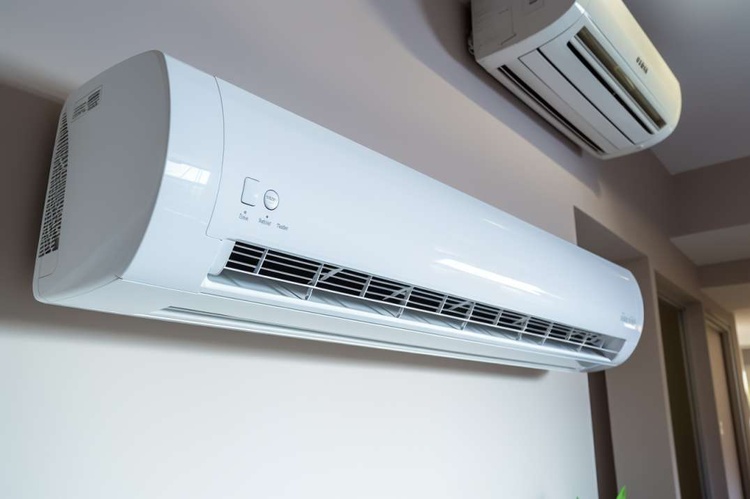The Ultimate Heat Pump Guide: Why Modern Heat Pumps Are Your Best Choice
Heat pumps have revolutionized home heating and cooling, offering an energy-efficient alternative to traditional HVAC systems. As we delve into this comprehensive heat pump guide, we'll explore why modern heat pumps are increasingly becoming the best choice for homeowners across Canada. From their eco-friendly operation to their year-round functionality, heat pumps are transforming the way we think about climate control in our homes.

What exactly is a heat pump and how does it work?
A heat pump is a versatile HVAC system that can both heat and cool your home. Unlike conventional heating systems that generate heat, a heat pump transfers heat from one place to another. In winter, it extracts heat from the outside air (even in cold temperatures) and moves it indoors. During summer, it reverses this process, removing heat from your home and expelling it outside. This unique ability to both heat and cool makes heat pumps an efficient, all-in-one solution for year-round comfort.
Why are modern heat pumps considered more efficient?
Modern heat pumps have come a long way in terms of efficiency. They use advanced technology to operate more effectively in extreme temperatures, making them suitable for Canada’s diverse climate. Today’s heat pumps can achieve coefficients of performance (COP) of 3 or higher, meaning they can produce three units of heat energy for every unit of electricity consumed. This high efficiency translates to lower energy bills and reduced carbon footprint, making modern heat pumps an environmentally responsible choice.
What types of heat pumps are available for Canadian homes?
There are several types of heat pumps suitable for Canadian homes:
- Air-source heat pumps: The most common type, these extract heat from the outside air.
- Ground-source (geothermal) heat pumps: These use the earth’s constant underground temperature for heating and cooling.
- Ductless mini-split heat pumps: Ideal for homes without existing ductwork or for zone heating/cooling.
- Hybrid heat pumps: These combine a heat pump with a furnace for optimal efficiency in colder climates.
Each type has its advantages, and the best choice depends on factors like your home’s size, existing HVAC system, and local climate.
How do heat pumps perform in Canada’s cold winters?
One common concern about heat pumps in Canada is their performance during harsh winters. However, modern heat pumps have made significant strides in cold weather operation. Many current models can effectively heat homes even when outdoor temperatures drop to -25°C or lower. Some advanced systems use enhanced vapor injection technology to maintain efficiency in extreme cold. While supplemental heating may be necessary during the coldest days in some regions, heat pumps remain an excellent primary heating source for most Canadian homes year-round.
What are the environmental benefits of choosing a heat pump?
Heat pumps offer substantial environmental benefits, making them an excellent choice for eco-conscious homeowners. By transferring heat rather than generating it, heat pumps use less energy than traditional heating systems. This reduced energy consumption leads to lower greenhouse gas emissions. Additionally, heat pumps don’t burn fossil fuels directly, further decreasing your carbon footprint. As Canada moves towards cleaner electricity grids, the environmental benefits of heat pumps will continue to grow, contributing to a more sustainable future.
How much can you save with a heat pump, and what are the installation costs?
Heat pumps can lead to significant energy savings, but the exact amount depends on various factors such as your current heating system, local energy prices, and climate. On average, homeowners can expect to save between 30% to 60% on their heating costs compared to electric resistance heating. However, the initial installation costs can be substantial.
Here’s a comparison of different heat pump types, their estimated costs, and potential savings:
| Heat Pump Type | Average Installation Cost | Annual Energy Savings | Lifespan |
|---|---|---|---|
| Air-Source | $4,000 - $8,000 | $300 - $900 | 15-20 years |
| Ground-Source | $20,000 - $40,000 | $1,000 - $2,500 | 20-25 years |
| Ductless Mini-Split | $3,000 - $7,000 per unit | $300 - $700 | 15-20 years |
| Hybrid System | $8,000 - $15,000 | $500 - $1,200 | 15-20 years |
Prices, rates, or cost estimates mentioned in this article are based on the latest available information but may change over time. Independent research is advised before making financial decisions.
While the upfront costs may seem high, the long-term energy savings and increased home value often make heat pumps a wise investment. Many provinces offer rebates and incentives for heat pump installations, which can significantly offset initial costs. It’s essential to consult with local HVAC professionals to get accurate quotes and explore available incentives in your area.
In conclusion, modern heat pumps represent an innovative, efficient, and environmentally friendly solution for home heating and cooling. As this heat pump guide demonstrates, these systems offer numerous benefits, from energy savings to reduced environmental impact. While the initial investment may be substantial, the long-term advantages make heat pumps an excellent choice for many Canadian homeowners looking to upgrade their HVAC systems.
The shared information of this article is up-to-date as of the publishing date. For more up-to-date information, please conduct your own research.




